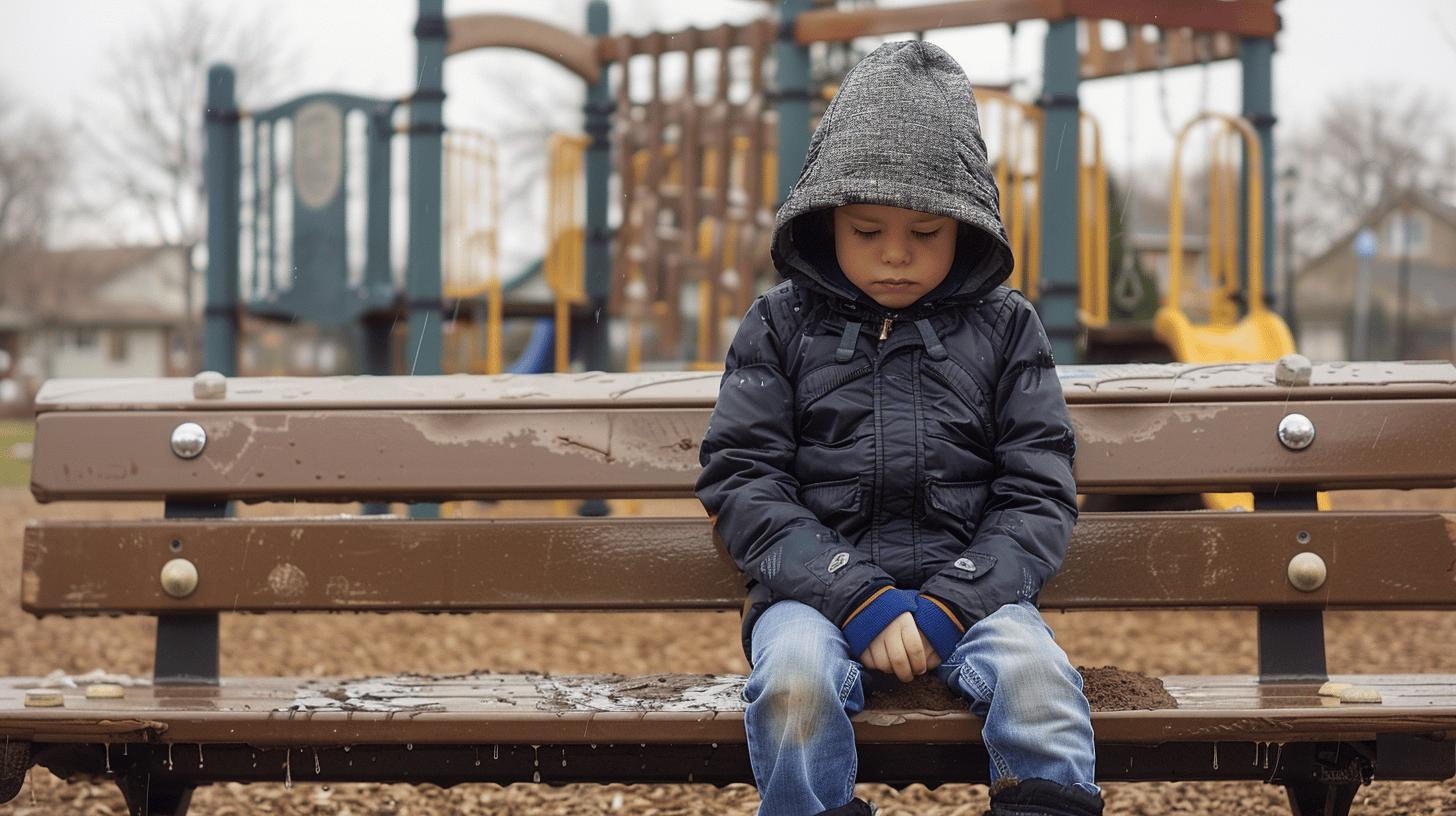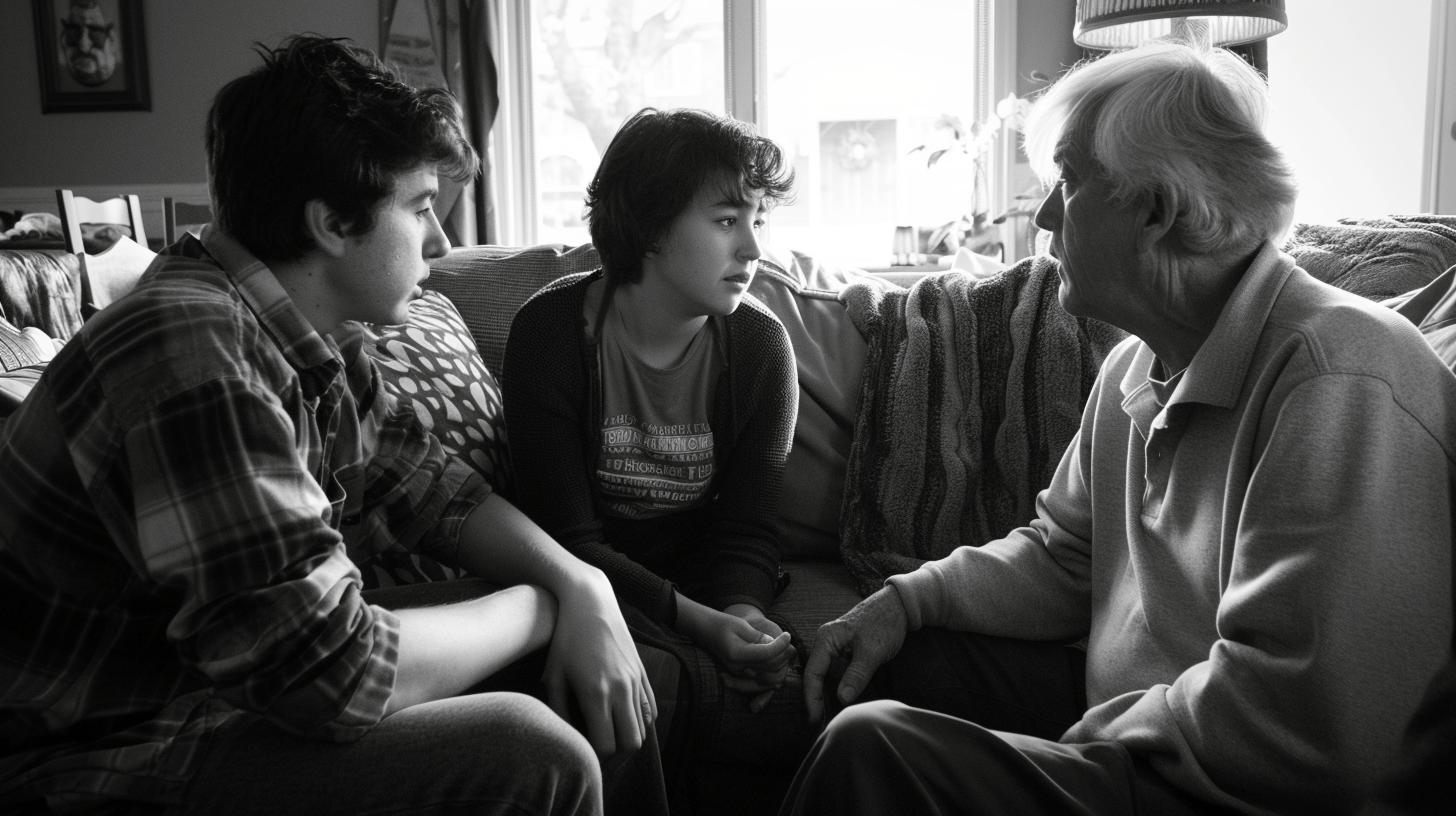Is your parenting style rooted in constant criticism and high expectations? While you may believe you're pushing your child to excel, critical parenting can have profound negative impacts. Children subjected to this style often develop perfectionist tendencies, anxiety, and fear of failure. Understanding the dynamics of critical parenting is the first step toward fostering a healthier, more supportive environment. Let’s delve into what critical parenting entails and explore its significant effects on children’s emotional and psychological well-being.
Defining Critical Parenting
Critical parenting is defined by constant criticism, negativity, and exceedingly high expectations. This parenting style aims to mold children into high achievers but often leads to unintended consequences. Children raised under critical parenting often become perfectionists, constantly fretting over mistakes and fearing risks.
Psychologically, critical parents typically have their motivations rooted in their own insecurities and high standards. They believe that relentless criticism will drive their children to excel. This mindset, however, can backfire, causing children to internalize a harsh inner critic and develop low self-esteem.
The environment created by critical parenting is often toxic. It leads to frequent conflicts and can weaken family bonds. The persistent negativity impacts a child’s mental and emotional well-being, making them feel inadequate and unloved.
Main Traits of Critical Parenting:
- Constant criticism
- High expectations
- Focus on mistakes rather than achievements
- Negativity
- Creating a toxic environment
Effects of Critical Parenting on Children

Critical parenting often leads to significant behavioral issues in children. These issues include externalizing problems such as aggression, defiance, and difficulties in social interactions. Children may act out due to the constant pressure and lack of positive reinforcement. This behavior is a coping mechanism to deal with the overwhelming criticism they face at home.
The mental health impact of critical parenting can be severe. Children subjected to constant criticism are at a higher risk of developing depression and anxiety. They internalize the negativity, leading to a persistent sense of inadequacy and self-doubt. This mental strain can manifest in various ways, including mood swings, withdrawal from social activities, and decreased academic performance.
Executive functions and motivation are also adversely affected. Children raised by critical parents often struggle with attention, planning, and problem-solving skills. The fear of making mistakes can cause them to procrastinate or avoid challenging tasks altogether. Their drive to succeed diminishes as they associate effort with inevitable failure and criticism.
The long-term impact on self-image and future relationships is profound. Constantly criticized children develop a negative self-image, believing they are never good enough. This mindset can follow them into adulthood, affecting their personal and professional relationships. They may struggle with trust, have difficulty accepting compliments, and often feel the need to prove themselves.
| Effect | Description |
|---|---|
| Behavioral Problems | Increased aggression, defiance, and social difficulties. |
| Mental Health Issues | Higher risk of depression, anxiety, and mood swings. |
| Poorer Executive Functions | Struggles with attention, planning, and problem-solving. |
| Decreased Motivation | Fear of failure leads to procrastination and avoidance of challenges. |
| Negative Self-Image | Belief of never being good enough, persistent self-doubt. |
| Future Relationship Issues | Difficulty with trust, accepting compliments, and feeling the need to prove oneself. |
Recognizing Signs of Critical Parenting
Critical parents often display certain behaviors that are clear indicators of their parenting style. These parents frequently criticize their children and maintain high, often unrealistic, expectations. They tend to focus more on mistakes than achievements, creating an atmosphere of negativity. This constant scrutiny can lead to a harsh inner critic in parents, mirroring the same behavior they impose on their children.
Children raised in such environments exhibit specific behaviors and effects. They may become perfectionists, always striving to meet the high standards set by their parents. Fear of failure is common, leading to significant anxiety and stress. These children often have low self-esteem, feeling they can never measure up to their parents' expectations. Observable effects include reluctance to take on new challenges and a tendency to avoid situations where they might make mistakes.
Psychologically, both parents and children show distinct indicators. Parents with a critical parenting style often have an overactive inner critic, a voice in their heads that constantly judges their own actions and those of their children. This psychological state stems from their own insecurities and experiences. Children, on the other hand, internalize these criticisms, leading to a persistent sense of inadequacy and self-doubt. This ongoing cycle perpetuates the critical behavior from one generation to the next.
Common Behaviors of Critical Parents:
- Frequent criticism
- High expectations
- Focus on mistakes rather than achievements
- Negativity
- Creating a toxic environment
- Harsh inner critic
- Reluctance to acknowledge positive efforts
Dealing with Critical Parents

Building a support network is crucial for individuals dealing with critical parents. By surrounding themselves with understanding friends and family, they can find emotional refuge and gain different perspectives on their experiences. Support groups, both in-person and online, can also provide a sense of community and shared understanding. Professional help is essential for navigating the complexities of relationships with critical parents.
Setting and maintaining boundaries is another vital strategy. Clear boundaries help protect mental and emotional well-being by establishing what is and isn’t acceptable behavior. Communicating these boundaries can be challenging, but it’s necessary to be firm yet respectful. If the parents are open to change, discussing feelings and the impact of their criticism can foster a better understanding and potentially reduce negative interactions.
Therapy plays a significant role in dealing with critical parents. Individual therapy helps in processing emotions, understanding past traumas, and developing coping strategies. Family therapy can be especially beneficial, as it addresses the dynamics at play and provides a platform for open and guided communication. Since lifelong patterns of criticism are hard to break, therapy can offer tools and techniques for both parents and children to improve their relationship.
Focusing on personal mental health and resilience is equally important. Practicing positive self-talk can counteract the negative effects of constant criticism. Techniques such as mindfulness, meditation, and physical exercise can also bolster mental health. Recognizing personal achievements, no matter how small, helps in building self-esteem and resilience.
Recommended Actions for Dealing with Critical Parents:
- Seek support and build a network
- Set and maintain clear boundaries
- Consider individual and family therapy
- Practice positive self-talk and mindfulness
- Recognize and celebrate personal achievements
Long-Term Effects of Growing Up with Critical Parents
Adults who grew up with critical parents often grapple with significant psychological and emotional effects. One of the most pervasive issues is self-doubt, stemming from years of constant criticism. These individuals frequently question their abilities and decisions, resulting in a lack of confidence. Perfectionism is another common trait, as they have internalized the belief that anything less than perfect is unacceptable. This relentless pursuit of perfection can lead to chronic stress and burnout. Moreover, the fear of failure becomes deeply ingrained, causing avoidance of new challenges or risks.
The impact on personal and professional relationships is equally profound. Trust issues are common among adult children of critical parents. They may find it difficult to trust others, fearing judgment and criticism. This mistrust can strain romantic relationships, friendships, and even professional interactions. Additionally, they often experience depression and anxiety, which can further complicate their social and work lives. A harsh inner critic, mirroring their parents' critical voice, perpetuates feelings of inadequacy and self-blame, making it hard to form and maintain healthy relationships.
Despite these challenges, some coping mechanisms and resilience strategies can help. Therapy and counseling are vital tools for addressing deep-seated issues and developing healthier thought patterns. Building a supportive network of friends and loved ones can provide emotional refuge and positive reinforcement. Mindfulness practices, such as meditation and journaling, can help individuals become more aware of their inner critic and learn to counteract it with self-compassion. Over time, these strategies can aid in healing and building resilience.
Common Long-Term Effects of Growing Up with Critical Parents:
- Self-doubt
- Perfectionism
- Fear of failure
- Trust issues
- Depression and anxiety
- Harsh inner critic
Breaking the Cycle of Critical Parenting

Self-awareness is crucial in breaking the cycle of critical parenting. Recognizing patterns of behavior that may be overly critical or harsh is the first step. Parents need to reflect on their actions and understand how their own upbringing and insecurities may influence their parenting style. Being mindful of these tendencies allows for more intentional and positive interactions with their children.
Therapy and professional guidance play a significant role in overcoming critical parenting patterns. Individual therapy can help parents address underlying issues and develop healthier coping mechanisms. Family therapy can provide a supportive environment to discuss and resolve conflicts, promoting better communication and understanding within the family. Professional guidance offers tools and strategies to replace critical behaviors with nurturing ones.
Promoting positive and compassionate parenting involves several techniques. Providing positive feedback and acknowledging children's efforts fosters a supportive environment. Open communication, where children feel heard and valued, is essential for building trust. Practicing empathy, understanding the child's perspective, and validating their feelings can significantly improve the parent-child relationship. These techniques help create a nurturing environment where children feel safe and valued.
Steps to Break the Cycle of Critical Parenting:
- Develop self-awareness and recognize critical behaviors
- Seek individual and family therapy
- Provide positive feedback and reinforcement
- Practice open communication and empathy
- Replace critical behaviors with supportive actions
Alternatives to Critical Parenting: Positive Approaches
Positive parenting approaches focus on empathy, open communication, and positive reinforcement. Unlike critical parenting, which emphasizes mistakes and high expectations, positive parenting encourages children to grow in a nurturing environment. Compassionate parenting alternatives ensure that children feel valued and understood, fostering a healthy emotional and psychological state. Techniques such as active listening and validating feelings help children feel respected and heard, which is crucial for their overall development.
Supportive parenting offers significant benefits for child development. By encouraging children to take risks and learn from their mistakes, it helps them develop self-esteem and resilience. This approach teaches children that errors are part of the learning process, reducing the fear of failure and promoting a growth mindset. Constructive feedback, rather than criticism, helps children improve without damaging their self-worth. As a result, children raised with positive parenting methods are more likely to become confident, independent, and emotionally stable adults.
Positive Parenting Techniques:
- Active listening
- Validating feelings
- Offering constructive feedback
- Encouraging risk-taking and learning from mistakes
Final Words
In the action, the article delved into critical parenting, outlining its definition and core traits. It also explored the effects on children, recognizing signs, and strategies to handle critical parents. The long-term impact on adults and ways to break the cycle were discussed, concluding with alternatives to critical parenting.
Critical parenting can damage a child's self-esteem and mental well-being. Recognizing this can help parents adopt more supportive approaches.
By addressing these issues, healthier family dynamics can be fostered, leading to happier children and stronger relationships.
FAQ
How do you know if you are a critical parent?
A: A critical parent often focuses on mistakes, sets high expectations, and frequently criticizes. Observing your child's low self-esteem, perfectionism, or fear of failure can also indicate critical parenting.
How do you deal with critical parents in adulthood?
A: Adults can deal with critical parents by setting boundaries, seeking support, and possibly engaging in therapy. Open conversations and family therapy might also help if the parents are willing to change.
What is an example of criticism in parenting?
A: An example includes constantly pointing out a child's mistakes without acknowledging their achievements, or frequently comparing them to others, making them feel inadequate.
How can you stop being an overcritical parent?
A: To stop being overcritical, practice self-awareness, seek therapy, and focus on positive feedback. Encourage open communication and empathy to build a healthier relationship with your child.
What are signs of overly critical parents?
A: Signs include constant criticism, high expectations, and focusing on errors instead of achievements. Children may show signs of perfectionism, low self-esteem, and fear of failure.
What are the long-term effects of critical parents?
A: Long-term effects include self-doubt, perfectionism, fear of failure, and strained relationships. Adults might struggle with trust, experience anxiety or depression, and have a harsh inner critic.
What is critical parent psychology?
A: Critical parent psychology involves understanding the motivations and behaviors behind constant criticism, often linked to parents' insecurities, high standards, and need for control.
What are examples of critical parenting in adulthood?
A: In adulthood, critical parenting can manifest as unresolved self-criticism, difficulty forming relationships, and ongoing conflicts with parents. Adults may also adopt similar behaviors toward their own children.


